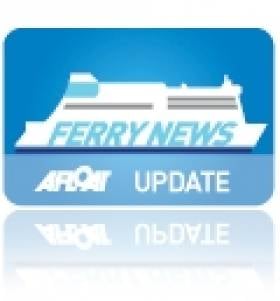Displaying items by tag: R Six
Dublin Is Fly-Cruise Hub as 'Journey' Heads for Iberian Sun
Tonight's departure is for Holyhead, where the call to Anglesey also covers tours of Snowdonia, the impressive castles of Conwy, Caernarvon and Harlech and a stop to Bodnant. Following the Welsh call she is to visit Cobh. Other calls are to Bordeaux (overnight), Bibao, Gijon,Vigo and the final port of call is Lisbon on 7 September where passengers will remain in their cabins for an overnight stay. The next day there is a scheduled tour of the Gulbenkian Museum, the Jeronimos Monastery and Sintra.
On one-day the ship will spend the entire day at sea which will enable passengers to indulge further of the facilities such as the casino and entertainment in the theatre, for more click HERE. Fares for the Irish passengers of the 10-day cruise/11-day holiday started at €2,062 per person (cruise-only) based on the lowest grade twin cabin. After completion of the cruise in Lisbon they will take a flight to return to Dublin.
Azamara Journey formed part of the eight-strong series commissioned for Renaissance Cruises which collapsed a decade ago. They were built by Chantiers de l'Atlantique in St.Nazaire and were uninspiringly named as R One, R Two etc with the R Six now the re-named Azamara Journey.
As August and the high-season draws to a close that doesn't' stop the cruiseships calling as over twenty more are due in Dublin before the season closes. In total the port this year has handled some 90 cruiseships and 160,000 passengers. A further 65 callers so far are scheduled for 2012.
- Cobh
- Dublin Port
- Cruise Liners
- Princess Cruises
- Holyhead
- Anglesey
- Ports and Shipping
- Cobh Cruise Terminal
- Port of Dublin
- Cruise Liner news
- Trinity College
- Cruise ships
- Ocean Princess
- Azamara Club Cruises
- Azamara Journey
- Renaissance Cruises
- R6
- Powerscourt Gardens
- Gulbenkian Mseum
- Lisbon
- Western European Cruises
- Dublin cruise terminal
- Welsh cruise calls
- Welsh castles
- R Six
- Chantiers de l'Atlantique
























































